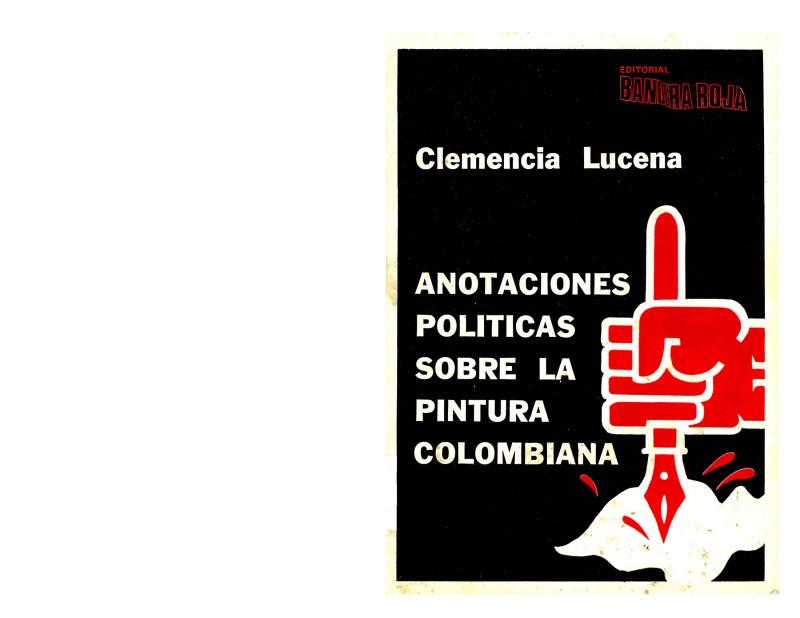This article by Miguel González (b. 1950) was one of a number of criticisms written by some Colombian intellectuals upon publication of the book Anotaciones políticas sobre la pintura colombiana [see doc. no. 1129326] in September 1975. Printed by MOIR’s publishing arm, Bandera Roja, the book gathered several articles by the artist and militant Clemencia Lucena (1945–83) previously published in major newspapers such as El Tiempo (Bogotá), El Pueblo (Cali), and Vanguardia Liberal (Bucaramanga). González, the most important art critic in Cali in those years, was prepared for battle; he lit into Lucena only a month after the book was published. The critic from Cali was a defender and promoter of avant-garde art approaches and art created at the periphery of “official art,” such as those of Ciudad Solar. This was a cultural center that operated on the periphery of the official culture in Cali during the early 1970s. González objected to the dogmatic, superior tone maintained by Lucena through both her paintings and her various critical texts, which elicited reactions from around Colombia. As a MOIR militant, over the years, Lucena ended up incorporating the political and artistic approaches of the Chinese Communist party. This involved following Maoist guidelines, which is evident throughout the book, but especially in the first part, where the writer presents her critical review of painting in Colombia. In Lucena’s opinion, there were very few examples of progressive art to be found in Colombia. By that time, 1975, Lucena had cast her lot with Socialist Realism; as González points out in his article, this is why the artist’s paintings appear to be replicas of Maoist propaganda and posters. To the critic, these works obviously falsified the life experience of the Colombian working class the artist sought to portray.
In addition to this article by Miguel González, there were others by the art critic Álvaro Medina and the poet María Mercedes Carranza (both in El Estravagario, the Sunday supplement of El Pueblo). Moreover, there was one article on this subject with no byline in Voz proletaria.

